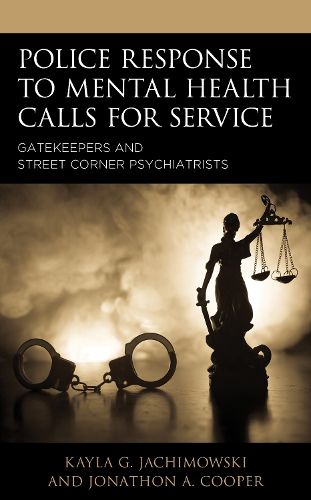Readings Newsletter
Become a Readings Member to make your shopping experience even easier.
Sign in or sign up for free!
You’re not far away from qualifying for FREE standard shipping within Australia
You’ve qualified for FREE standard shipping within Australia
The cart is loading…






Police Response to Mental Health Calls for Service: Gatekeepers and Street Corner Psychiatrists focuses on closing the gap in literature surrounding police responses to mental health calls for service, with an emphasis on the effect of training and relationships with mental health agencies, in order to better understand the interaction between police officers and individuals with mental health diagnoses. Kayla G. Jachimowski and Jonathon A. Cooper pay close attention to Crisis Intervention Training (CIT) and its impact on how police officers would respond to these calls for service, also examining how the relationships between police, the community, and mental health service providers impact police response. Jachimowski and Cooper argue for the importance of police training about mental health disorders and explore the likelihood of diverting individuals with mental illness from the criminal justice system. Scholars of criminology, sociology, and psychology will find this book particularly useful.
$9.00 standard shipping within Australia
FREE standard shipping within Australia for orders over $100.00
Express & International shipping calculated at checkout
Police Response to Mental Health Calls for Service: Gatekeepers and Street Corner Psychiatrists focuses on closing the gap in literature surrounding police responses to mental health calls for service, with an emphasis on the effect of training and relationships with mental health agencies, in order to better understand the interaction between police officers and individuals with mental health diagnoses. Kayla G. Jachimowski and Jonathon A. Cooper pay close attention to Crisis Intervention Training (CIT) and its impact on how police officers would respond to these calls for service, also examining how the relationships between police, the community, and mental health service providers impact police response. Jachimowski and Cooper argue for the importance of police training about mental health disorders and explore the likelihood of diverting individuals with mental illness from the criminal justice system. Scholars of criminology, sociology, and psychology will find this book particularly useful.